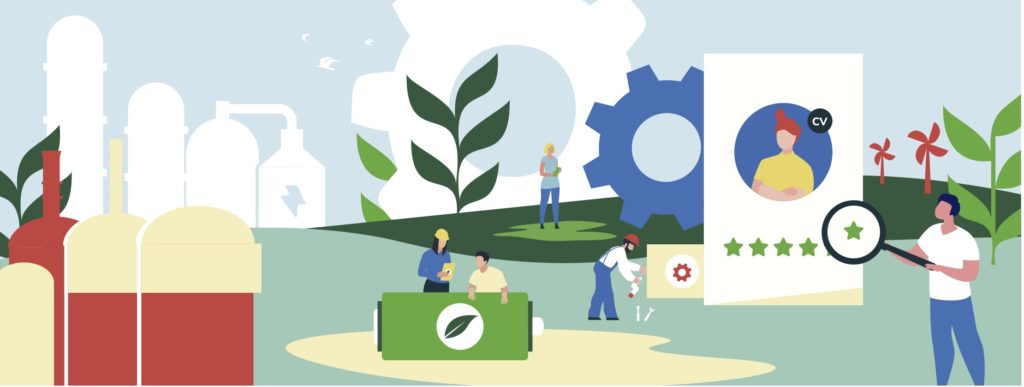The Skills for the Green Energy Transition
The ambitious new targets for renewables and energy efficiency will require a growing and skilled green transition workforce.
During the energy crisis, many enterprises rapidly shifted towards installing solar PV panels and solar boilers, heat pumps and home insulation to save households from high heating bills and helped all of us to secure energy supply and reducing our dependency from imported fossil fuels.
With 2023 as the European Year for Skills, I would like to highlight the importance of the European workforce and its skills asset to achieve the European Green Deal ambitions.
The European Commission proposed increased ambition for EU’s renewable energy and energy efficiency, which the Member States and the European Parliament provisionally agreed on earlier this year. This means a doubling of the annual deployment of renewables compared to 2021, more companies to carry out energy audits, and more people to provide technical and financial assistance to consumers to invest in renewables and energy efficiency. We have also proposed to double the annual energy renovation rate of buildings by 2030.
A green transition workforce will be indispensable to meet these targets, be it in the private or public sector to speed up permitting procedures for renewable projects. And if not properly addressed, it may lead to delays in the roll-out of clean energy technologies across all sectors.
The International Energy Agency estimates that already half of the 60 million energy-related jobs are in the clean energy sector. Globally, clean energy sector jobs are expected to grow from 33 million to more than 70 million by 2030.
In the EU alone, the number of people employed in the renewable energy sector will have to grow massively to keep our industry going. It is estimated that by 2030 we will need to create 3.5 million new jobs, which means more than doubling the existing workforce of an estimated 1.5 million workers.
This is why we focus this year’s EU Sustainable Energy Week on the topic of skills. Lack of skills and an insufficient number of workers in the various segments of clean energy technologies’ value chains is already perceived as a barrier to investments and is becoming one of the most serious concerns by the industry.
Globally, clean energy sector jobs are expected to grow from 33 million to more than 70 million by 2030.
The increased deployment targets will trigger the need for reskilling of the workforce downstream. Where plumbers once installed gas boilers, we will need installers of heat pumps and solar thermal systems. Electricians will have to install solar PV systems and new energy management systems to connect renewables, home appliances and electric charging of vehicles to maximize their benefits.

New skills for infrastructure
New skills will also be needed in our infrastructure sectors. Skills on smart grids management, direct current electricity networks, and the operation of electricity grids with high shares of variable renewables will need to become the norm. Gas system operators will need the skills to transition from the management of natural gas pipelines and storage sites to hydrogen and CO2 pipelines.
The Net Zero Industry Act (16 March 2023) will also boost the European manufacturing sector, where new skills will be needed to produce clean tech technologies, such as batteries, electrolysers, and energy management systems. Expanding our manufacturing capacity of solar, wind, geothermal and biomethane technologies will also create new jobs across the EU. Industrial engineers will be needed to electrify our industrial production processes. This is why the Net-Zero Industry Act establishes European Net Zero Industry Academies.
And we do not stop there. Our Critical Raw Materials Act (CRM Act) aims to expand the extracting, processing and recycling of the raw materials needed to produce clean technologies. These are new industries that will require a new skill sets, including for the administrators, regulators and public servants that will be required to govern these new industries.
At the 2023 EU Sustainable Energy Week, we will present the newly formed Partnership for Skills in the Renewable Energy Sector. This initiative brings together partners from across the full value chain to identify skills gaps, support education, promote quality careers and diversity, and support public authorities. The partners are inviting additional stakeholders to join this initiative, because a skilled workforce will be beneficial for the whole value chain.
The aim of the European Green Deal is to create a climate neutral economy. This will not only ensure the livelihood for future generations, but it will also provide them with new career opportunities.